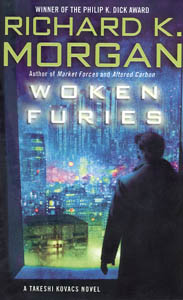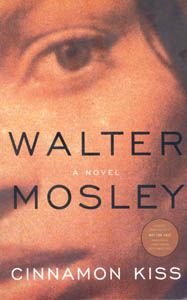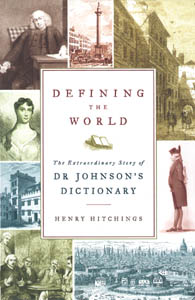![[whitespace]](/gifs/whiteline2.gif) |
Book Box

Woken Furies
Woken Furies is Richard Morgan's third novel featuring mercenary and private investigator Takeshi Kovacs, set in a future where humanity has developed a technology that allows us to store our lives, experiences, our very souls in the "altered carbon" of a cortical stack. If you're killed, your stack can be removed, and you can be "resleeved" in a new body, assuming you can afford it. Morgan's Altered Carbon was a violent noir set in San Francisco; Broken Angels resurrected Takeshi in mercenary mode intervening in a planetary revolution. Here, he combines the two as Kovacs returns to his home, Harlan's World. While doing mercenary work, he finds himself drawn into a criminal conspiracy that hopes to foment revolution. The violence remains intact, but Kovacs has become weary and leery of his once-favorite pastime. Fortunately for the reader, Kovacs has been Napstered. One of the ruling elites has illegally copied and sleeved a younger Kovacs to hunt the original, bringing new meaning to self-conflict. Great surfer settings and violence recollected in tranquility make this a more emotional but no-less-gripping novel than its predecessors. (By Richard Morgan; Del Rey Books; 450 pages; $24.95 cloth)
—Rick Kleffel

Cinnamon Kiss
In the newest Easy Rawlins novel, Walter Mosley's wary black detective confronts a familiar scenario: A black woman connected to the crimes of rich, depraved white men needs to be found, and the obvious choice is Rawlins. The time is 1966, the year after the Watts Riots (setting for the previous Rawlins novel, Little Scarlet). Desperate to raise money to cure his sick daughter, Feather, Easy dabbles with the idea of doing a job with his killer pal Mouse. Instead, he takes an assignment searching for one Cinnamon Cargill, possessor of some incendiary secrets about a corrupt family. Although now in his mid-40s, Easy still attracts a full ration of trouble (as Mosley said in a recent interview, "If Easy Rawlins has to save your life, you're probably better off dead") and more mystically satisfying sex in a week than most people enjoy in a lifetime. As always, Easy's well-nourished resentment at the depredations of white society surfaces with flurries of ice-cold anger. But when he makes a foray to Summer of Love San Francisco, Easy realizes that there may be hope for a "country that seemed to be teetering on the edge of a race war." The action is rendered with case-hardened perfection: "I knew who the mastermind way. I knew why and knew how. But I still didn't see a way out unless I too became a murderer." (By Walter Mosley; Little, Brown; 308 pages; $24.95 cloth)

Defining the World: The Extraordinary Story of Dr. Johnson's Dictionary
Dictionaries are quintessentially committee work, which is why Samuel Johnson's one-man Dictionary of the English Language, published in 1755, remains the only word book that can be "read with pleasure" (as Macaulay called it). Filled with deft and witty definitions, prejudice (aimed mostly at the Scots), classical allusions, medical folklore and a few made-up words, Johnson's dictionary laid the groundwork for Webster's and the OED. It was Johnson who decided that a dictionary should be describe rather than proscribe the language and that quotations showing words in their natural habitat should form the bedrock of lexical research. With only the help of a few amanuenses to copy salient citations, Johnson toiled for nine years on his opus magnum. Henry Hitchings' erudite recounting of Johnson's labors breaks no new ground—and is no substitute for the work of brown-noser Boswell—but is a worthy companion to Simon Winchester's story of the OED, The Meaning of Everything. (By Henry Hitchings; Farrar, Straus and Giroux; 292 pages; $24 cloth)
—Michael S. Gant
Send a letter to the editor about this story to letters@metronews.com.
[ Silicon Valley | Metroactive Home | Archives ]
|
![[Metroactive Books]](/books/gifs/books468.gif)


